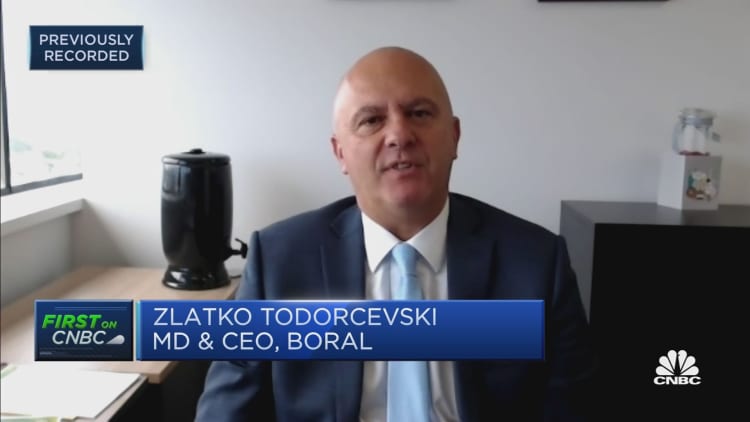Australia's central bank on Tuesday recommitted to keeping interest rates at historic lows
as policymakers battle to stop surging bond yields from disrupting the country's surprisingly strong economic recovery.
Concluding its March Board meeting, the Reserve Bank of Australia (RBA) kept rates at 0.1% and emphasized that its targets for employment and inflation were not likely to be met until 2024 at the earliest.
The central bank has been struggling to deal with a steep sell-off in global bond markets that saw local yields spike to two-year peaks in just a couple of sessions.
The savage move sent three-year yields as high as 0.188% and threatened to un-anchor them from the RBA's target of 0.1%. The bank responded with an aggressive 3 billion Australian dollars ($2.33 billion) bond buying offer last Friday, and followed up with another AU$4 billion in Monday.
"The Bank remains committed to the 3-year yield target and recently purchased bonds to support the target and will continue to do so as necessary," said RBA Governor Philip Lowe.
"The Board remains committed to maintaining highly supportive monetary conditions until its goals are achieved."
That helped three-year yields edge down a little to 0.14%, though the much more liquid futures market is still implying a yield of 0.265%.
Yields on 10-year bonds also went flying last week to reach as high as 1.973%, before easing back to the current 1.67%. The weekly increase of 43 basis points was the largest since 2001 and followed similar wild moves in U.S. Treasuries.
While some rise in yields was justified by the improving economy, the speed of the shift risked destabilizing markets.
So far, Australia's success in containing the coronavirus has allowed consumer spending to come roaring back from a lockdown-induced recession.
Figures due on Wednesday are forecast to show gross domestic product (GDP) grew 2.5% in the December quarter, on top of a 3.3% jump the previous quarter.
"Our figuring points to clear upside risks — potentially GDP growth could print close to 3%," said Westpac senior economist Andrew Hanlan. "Adding to the impetus, home building is now in an upswing and business investment may have advanced, after a string of negatives, led by equipment spending."
House prices are also climbing at their fastest pace in almost two decades, prompting some calls to cool the market with macroprudential rules, if not actual rate hikes.


